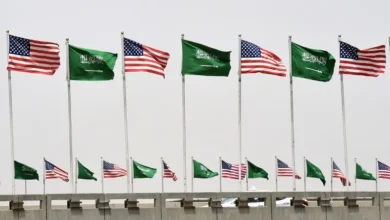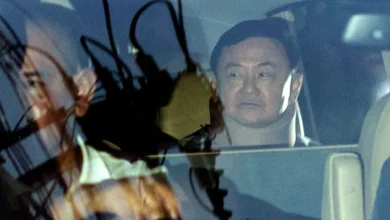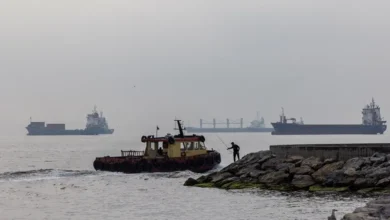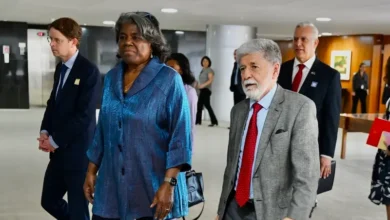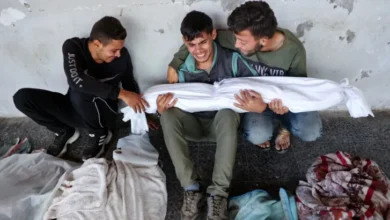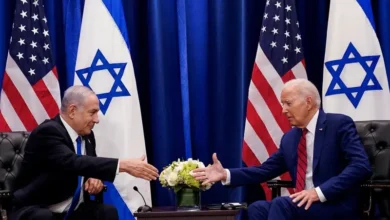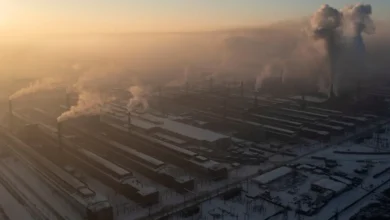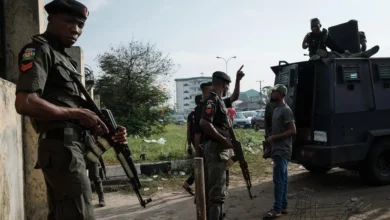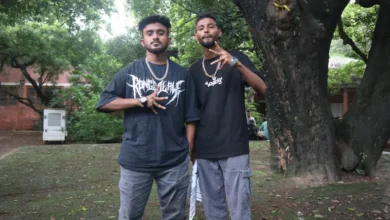Kashmir elections 2024: Who’s in the fray and what’s at stake?
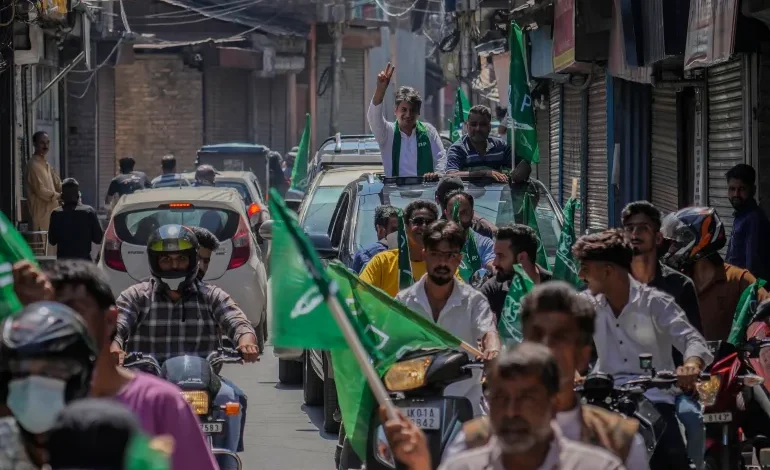
Kashmiris are set to vote to elect a local government for the first time in a decade, five years after India’s Hindu nationalist government suspended the state legislature and brought the Muslim-majority region under New Delhi’s direct rule.
The elections come weeks after New Delhi expanded the powers of its hand-picked administrator in the region, drawing criticism from mainstream Kashmiri parties as well as India’s main opposition Congress party. They say the government step has “disempowered” the region’s legislature.
Kashmir has been at the heart of a rivalry for 77 years between India and Pakistan, both of which govern part of the Himalayan territory but claim it in its entirety.
So how significant are the local elections and will they help resolve the region’s issues — ranging from high unemployment to deep-rooted grievances over political and human rights?
When are the elections?
The state elections – the first in 10 years – are scheduled to be held in three phases starting on September 18.
The second and third phases of voting will be held on September 25 and October 1 respectively. The results will be announced on October 8.
The elections are being conducted after India’s Supreme Court ordered that the region be allowed to vote for its representatives, in a judgement last December.
Nine million Kashmiris are registered to vote in a region that has traditionally been known for boycotts to protest against Indian rule.
But in the parliamentary elections held earlier this year, Kashmiris came out in large numbers to cast what analysts described as a “protest vote” against India’s decision to scrap the region’s limited autonomy in 2019.
Siddiq Wahid, an academic and political expert, told Al Jazeera that the main reason driving the large participation of Kashmiris in the election process is the collective desire to prevent the ruling Bharitiya Janata Party (BJP) from gaining power in Kashmir.
What’s on the agenda in the elections?
Kashmir’s mainstream political parties have promised to fight for full statehood and the restoration of the region’s special status.
They say the legislature has been weakened into a municipality, with former chief minister Omar Abdullah saying the new chief minister would have to beg the New Delhi-appointed lieutenant governor “to get even a peon [menial labourer] appointed”.
In an interview with The Print website on Monday, Abdullah said that the BJP-led government has “reduced Kashmir to a place where we are all political prisoners of Delhi”.
In July, the government of Prime Minister Narendra Modi clipped the state legislature’s power and handed the lieutenant governor more power, including control over police, public order and transfer and posting of officials.
Moreover, the state legislature won’t be able to make laws on education, marriages, taxes, property and forests, among others.
The Indian army stationed in Indian-administered Kashmir to quell armed rebellion already enjoys special powers.
The anger against Indian rule has deepened since the Modi government abrogated Article 370 of the constitution which granted special status to safeguard the region’s demography and culture. Modi has said the special status was a hurdle to the region’s development, since it placed restrictions on investments from outside in sectors such as real estate and property, and – according to the government’s narrative – made the integration of Kashmir’s society and economy into the Indian mainstream harder.
But Aneesa Farooq Jan, a Kashmir-based researcher, told Al Jazeera that while Article 370 remains a significant issue, there’s widespread pessimism among Kashmiris over what local leaders could potentially change, even if they wanted to.
“There is little hope among the people regarding human rights issues or political solutions.”
Radha Kumar, a New Delhi-based academic and author, said the powers given to the lieutenant governor were “utterly absurd”.
“I would expect both the new assembly and elected administration will make more noise than they might have done earlier like on issues of human rights,” she said.
The imprisonment of Kashmir youth, many of them in distant Indian jails, is also a major issue, as are local challenges such as a growing menace of drug abuse and unemployment.
“I am a student, I will vote hoping it might change the job scenario or help in releasing so many people in jails,” Tabinda Arif, attending a rally of the National Conference, the oldest party in the state, told Al Jazeera. “Everyone has suffered so much in the past five years, maybe things will change.”
Some voters, though, are disillusioned by the failure of politicians to keep their promises in the past.
“These politicians come when they need votes, and forget after coming to power. I am exhausted now. I have always voted till now, but it did not change anything for me,” said Abdul Rasheed, a 65-year-old farm worker in Pulwama.
“Only a miracle can change our situation.”
Will gerrymandering affect the outcome of the elections?
Kashmiri politicians and analysts have accused Modi’s BJP of “gerrymandering” the electoral constituencies on communal lines.
The constituencies were redrawn as part of the delimitation exercise in 2022 to increase the seat share of the Hindu-majority Jammu region at the cost of Kashmir Valley where Muslims are in the majority, they say.
Total seats in the regional assembly have gone up from 87 to 90, but the share in the Jammu region has risen from 37 to 43 seats while the Kashmir Valley saw an increase of just one seat to 47.
This move has been widely criticised for skewing representation in favour of Jammu, which has been awarded 48 percent of the seats in the legislature, though it accounts for 44 percent of the population.
The BJP has also been accused of backing independent candidates to split the vote, which could potentially weaken the opposition.
A record number of independent candidates are in the fray, with 145 names cleared for the first two phases.
But the BJP has rejected the accusations that it was backing independents to split the Kashmiri vote.
